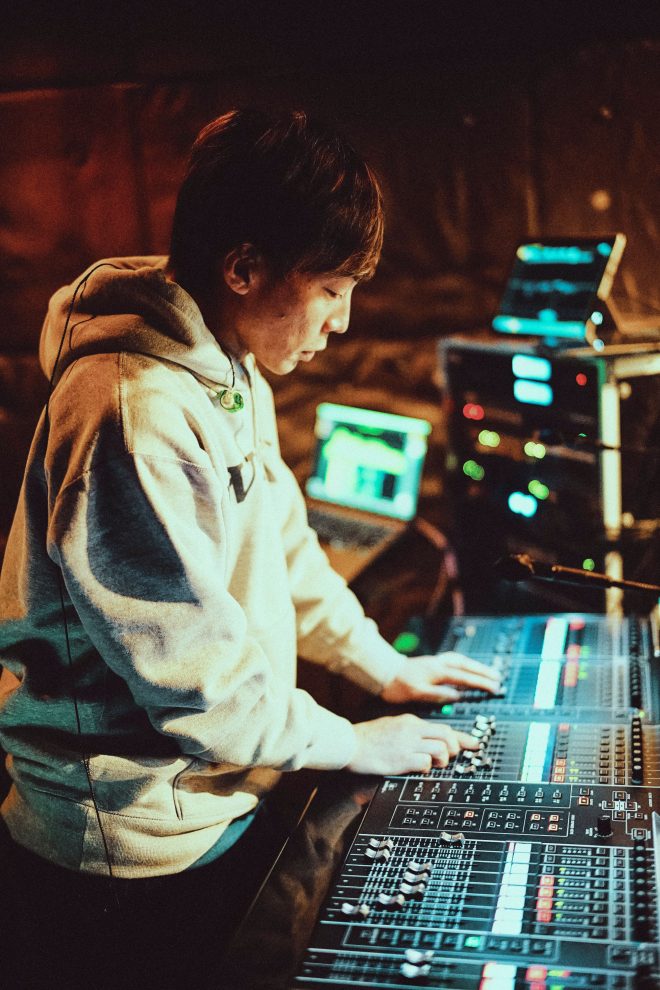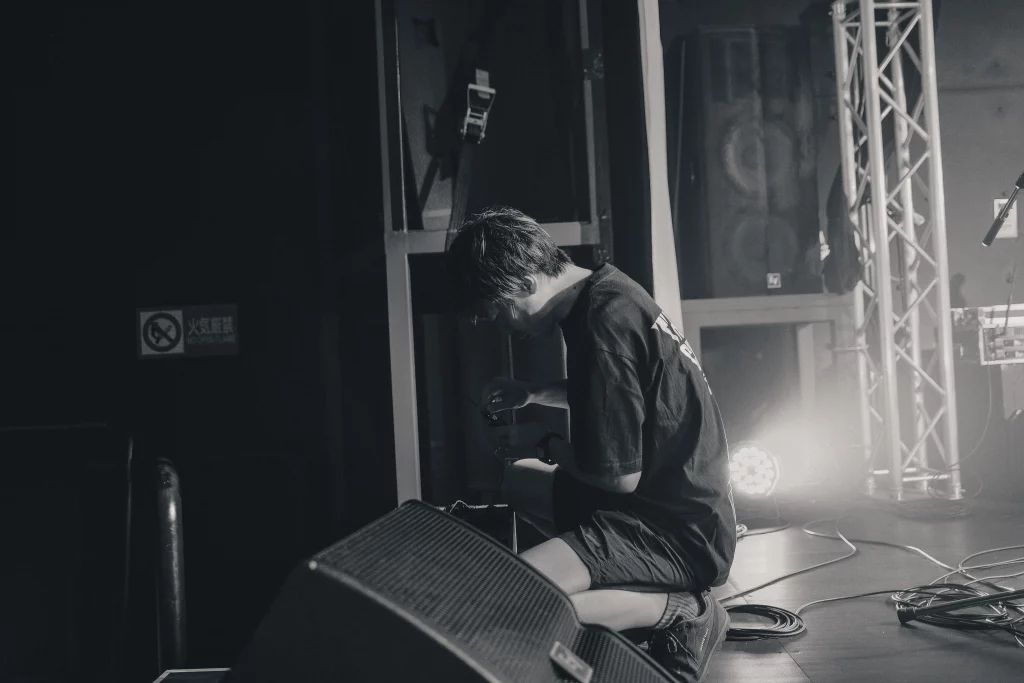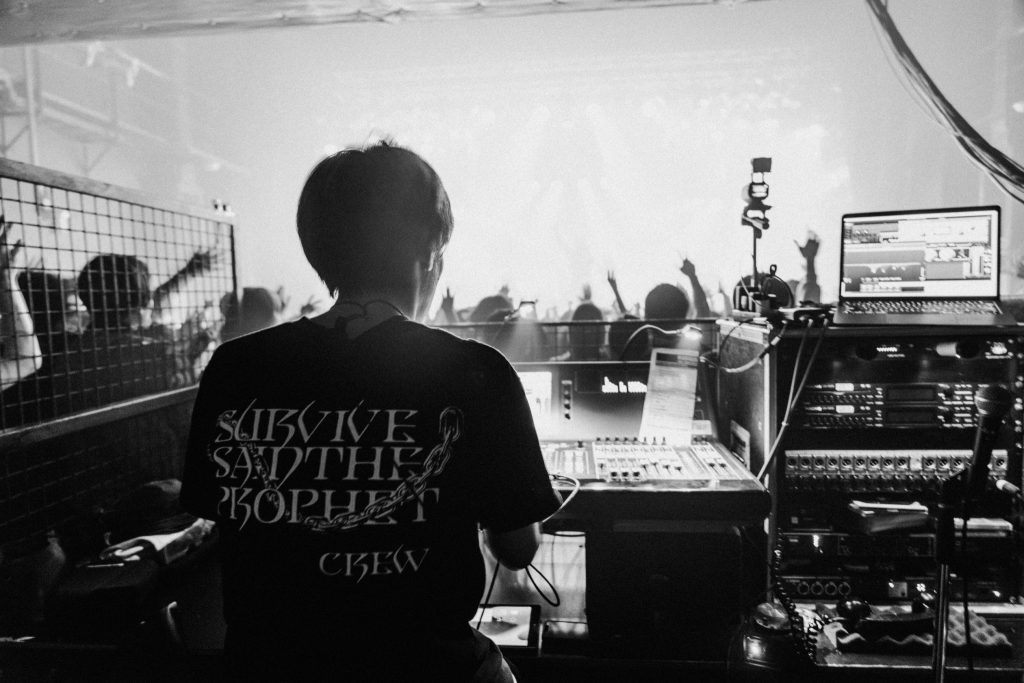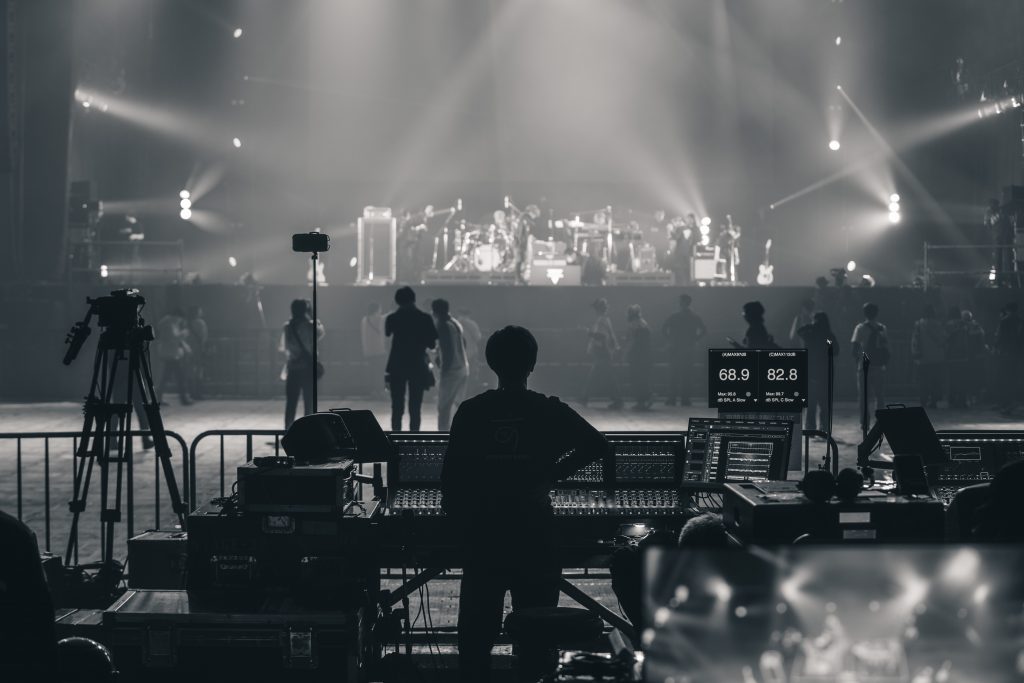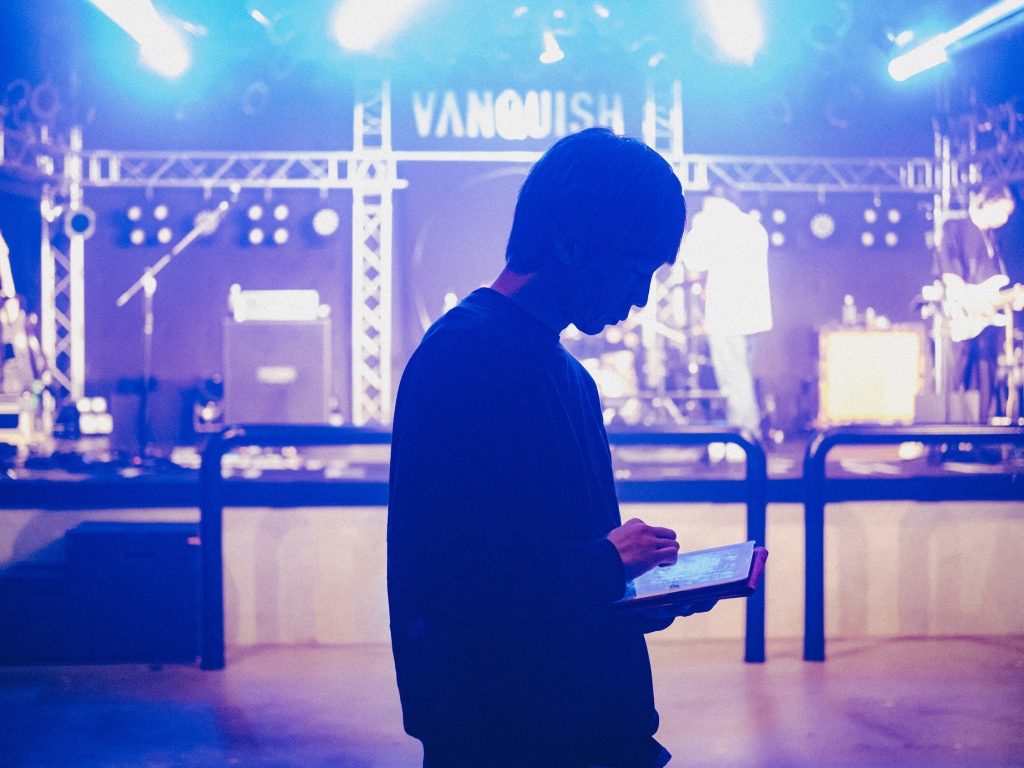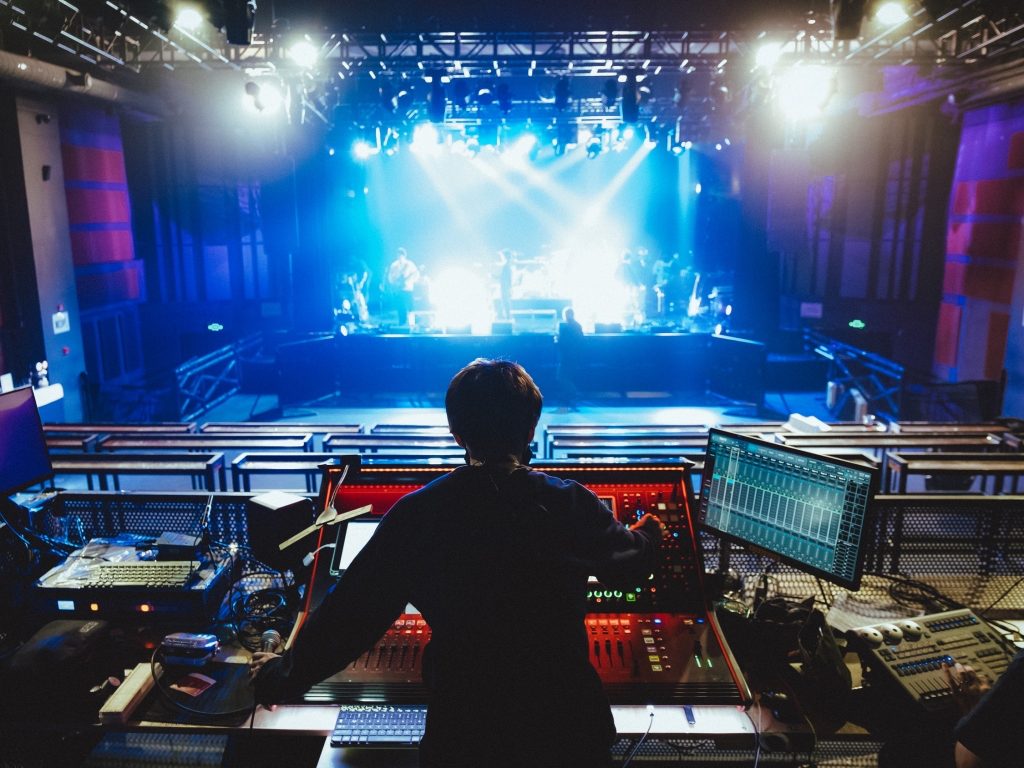Anyone who has ever been to a concert knows that sound is one of the most crucial elements of a live performance. With over 20 years of experience in the business, Yuta Odashima has made sound his life’s work. From high-energy concerts in Japan to festivals abroad, he’s behind the scenes crafting the perfect sound that allows artists to express themselves truly. In this interview, we’ll explore his journey—from his early days in the industry to the key lessons he's learned about what 'good sound' really is. We’ll also dive into how building strong relationships has been just as essential as perfecting his craft. Get ready for an inside look at what it takes to create a 'Good Show'!
ー To start off, can you please introduce yourself?
I work as live sound engineer at the company Live Date.
ー What about your personal life? Where are you from and what are your hobbies?
I’m from Miyagi Prefecture in Japan. It’s been 10 years since I moved to Tokyo. Back when I was in Miyagi, I loved hiking and used to go on hikes with a bandman friend of mine. These days I can’t go as often, but I still try to climb Mt. Fuji every year.
ー You work a lot with musicians, but what kind of music do you personally like? Any favorite genres or artists?
I like 90’s emo music - especially Jimmy Eat World.
ー You job as live sound engineer is quite a specialized profession many may not be familiar about. Could you explain what your work entails? Also, how did you get into sound engineering in the first place?
I travel with artists for their performances at live houses and festivals across Japan, ensuring that what they express on stage reaches the audience through sound. I also work internationally.
As a university student, I went to a live house for the first time to watch a friend’s performance. When I saw the PA at work, I immediately thought, “This is what I want to do!” After that, I apologized to my parents, quit university, and enrolled in a specialized school to study PA. (note: "PA" stands for Public Address: system used to amplify and project sound for large audiences) . After graduating, I worked at a sound company for five years, then spent another five years working at a live house. Now, it has been about ten years since I moved to Tokyo, and I believe that all those exepreiences were essential for me.
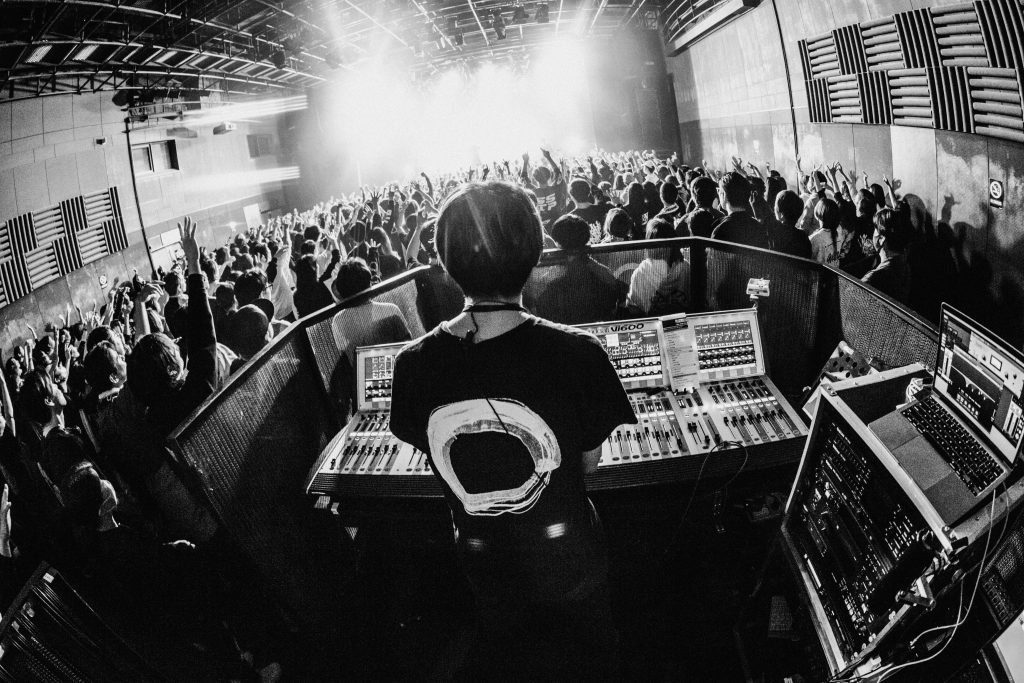
ー Do you still remember the very first time you did sound at a concert? How was it?
When I was a student at a vocational school, we organized an event where we rented out a live house, and students took charge of PA, lighting, and booking. By chance, everything went surprisingly well that day. Later, the band from that event asked me to handle their sound for another show. However, that time, things didn’t go well at all, and I learned the hard way how tough this industry really is! (laughs)
ー You work with so many artists daily, are there some that inspired you?
Not really, but as a sound engineer I was influenced by the Katsunori Sasaki from the live production company called "Tohoku Kyoritz" , as well as Jun Sasaki from the concert venue "Sendai Rensa".
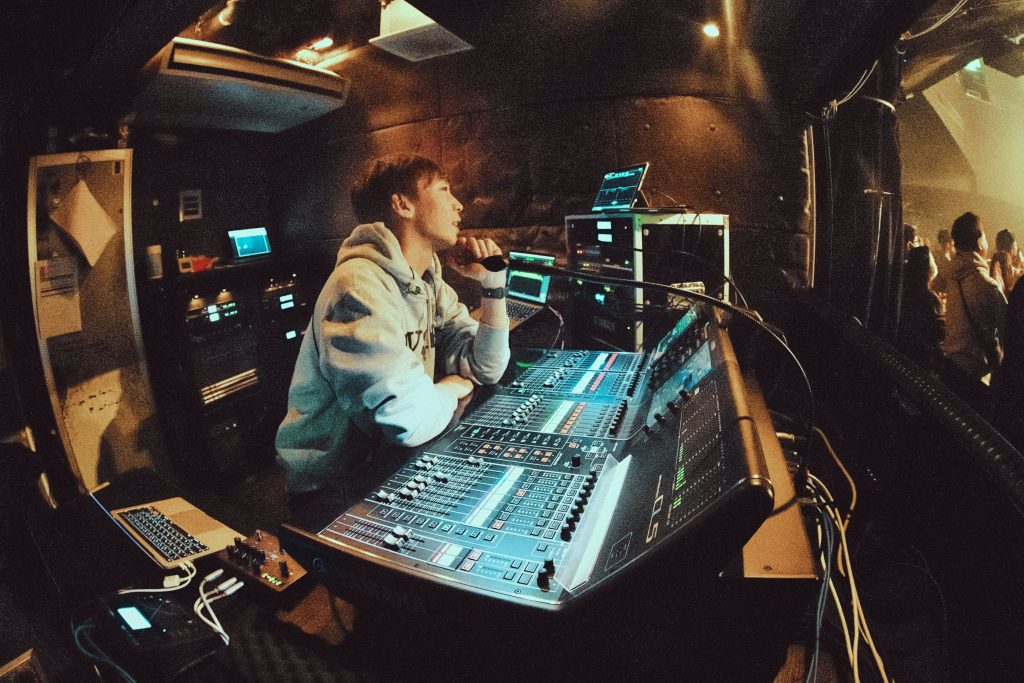
ー What did you learn from them?
One thing I learned from both of them is just how important it is to be well-prepared.
Katsunori Sasaki was my very first boss at the first company I joined.
The venue I worked at hosted many orchestral performances, so I learned a lot from him about manners and musical instruments. Also, he was extremely stoic when it came to sound, and I really learned a lot from his approach.
Jun Sasaki was my boss at the live house I joined after leaving the company mentioned above.
He was a PA engineer I had admired ever since I was a student.
Not only was his sound work amazing, but the way he worked with bands was also truly admirable — so much so that he was really popular among bands who came to Sendai on tour.
I would say that who I am today has been largely shaped by the things I learned from them.
ー Every band has their own unique sound, so how do you prepare to understand what exactly each artist might need when it comes to live sound production?
What I do is, properly listening to the artists music. Also, communicating a lot (regardless whether it’s about the sound or not).
ー You have worked at small live houses, large outdoor festivals, and on tours overseas, encountering a variety of environments and venue types. How do you handle the challenges that come with each setting? Also, what kind of environment do you find the easiest to control sound in, and which do you find the most difficult?
I’ve always loved venues with good sound absorption, as they make it easier to express what I want. But lately, I’ve also come to enjoy venues where the audience’s voices and applause resonate.
The most difficult environment are festivals with strict volume restrictions, but I also enjoy the process of coming up with creative solutions.
Since the perception of "good sound" varies from person to person, I always pay close attention to the audience during the show.
ー Is there anything in your work that you absolutely refuse to compromise on?
I constantly experiment to produce a sound that is powerful, yet easy on the ears.
ー During concerts, unexpected things must happen all the time. Were there moments where you thought, 'This is really bad'?
When I went to Manchester, UK, the venue staff weren’t there at the scheduled load-in time, and there was no console either. Later, someone arrived and told me that the console was in storage and asked for my help in bringing it out. We set it up together, so the show was able to go on smoothly.
ー What has been the most challenging period in your career so far, and how did you overcome it?
The first few years after I joined the sound company were the most difficult ones. I overcame those by valuing my time off and talking to my seniors and friends for support.
ー Could you tell us specifically what you struggled with, and what you think caused those difficulties?
Looking back, I believe everything was done with my best interests in mind.
But at the time, nothing I did seemed to go well, and I was constantly being scolded.
Every day felt like I was on the verge of breaking down.
ー Did your view on your job change with time, since starting your work?
I don't think it changed!
ー Have you noticed any habits you've developed because of your job as sound engineer?
I am very conscious of any kind of sound, whether it’s sounds from the street or announcements at stations.
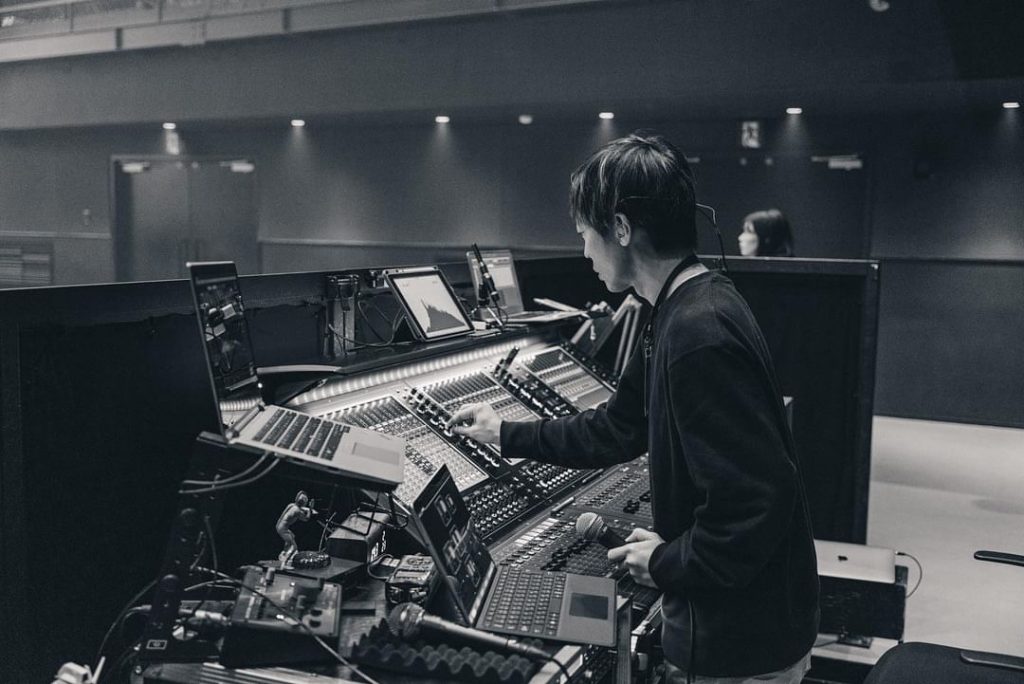
I think that during every concert, whether it's short or long, there's at least one moment that moves you — and to me, that’s what makes it a "Good Show".
ー If you could choose any concert, artist, or festival to work at, what would be your ultimate dream job as sound engineer?
I want to do PA for Jimmy Eat World’s song called “23”.
— Can you tell us more about why you chose that song? I listened to it and was a bit surprised to find out it was actually a mellow ballad — I had imagined it would be a much heavier track (laughs). Since you often work with heavier bands, I was wondering: does the process of creating sound differ depending on whether you're working on a ballad or a heavier song?
People often tell me they associate me with heavier music, but in reality, most of the artists I work with aren’t actually that heavy. One time, a member of a band said to me, “It’s so cool that a PA engineer who loves Jimmy Eat World is doing sound for a heavy band like ours.” I really felt the same way.
When it comes to the process of sound-making, I don’t feel there’s a huge difference between heavy songs and ballads. What I try to focus on, regardless of the genre, is staying true to the original recording — since a lot of people come to shows after listening to the recordings — and not letting my own ego get in the way. Above all, I aim to deliver a sound that makes the audience feel like they had an amazing concert experience. During shows, I always try to look around and see how people are reacting to the performance.
ー What kind of songs do you especially enjoy or feel most fulfilled working on?
I love songs that the audience can sing along to. A few years ago, I went on a tour in the UK, and I was deeply moved when the crowd sang along to not just the chorus, but the entire song during the headliner’s set. You could barely hear the PA over their voices. It felt like a moment when the live sound truly came together. I understand that it might have been a bit annoying for people who came to listen to the artist’s performance, but in that moment, it felt like everyone in the crowd was enjoying the show together.
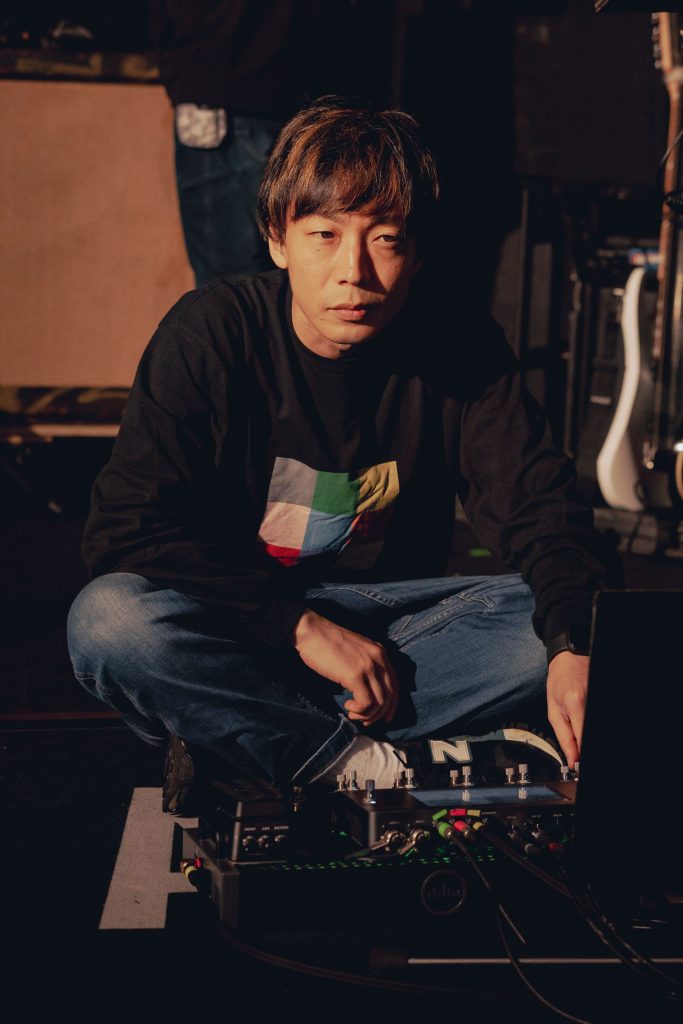
ー Speaking of dreams, what is your personal approach to achieving your dreams or goals?
Even if it's just a vague idea, I think it's important to vocalize the future you envision for yourself.
ー Is there a dream you're currently working towards?
I want to visit countries I've never been to before!
ー On your social media you often mention the phrase "Good Show". What does a "Good Show" mean to you?
I think that during every concert, whether it's short or long, there's at least one moment that moves you — and to me, that’s what makes it a "Good Show".
By the way, the phrase “Good Show” isn’t originally mine. When I worked overseas for the first time (in Hong Kong), there were many tough moments because the environment was so different from what I was used to in Japan. But the Hong Kong engineering team all shook hands, high-fived each other, and said things like "Good Show!" and “The audience had a great time, it was amazing!”. Although this phrase has now become something of a lucky charm for me, I can confidently say that every live show I’ve been a part of has truly been a “Good Show.”
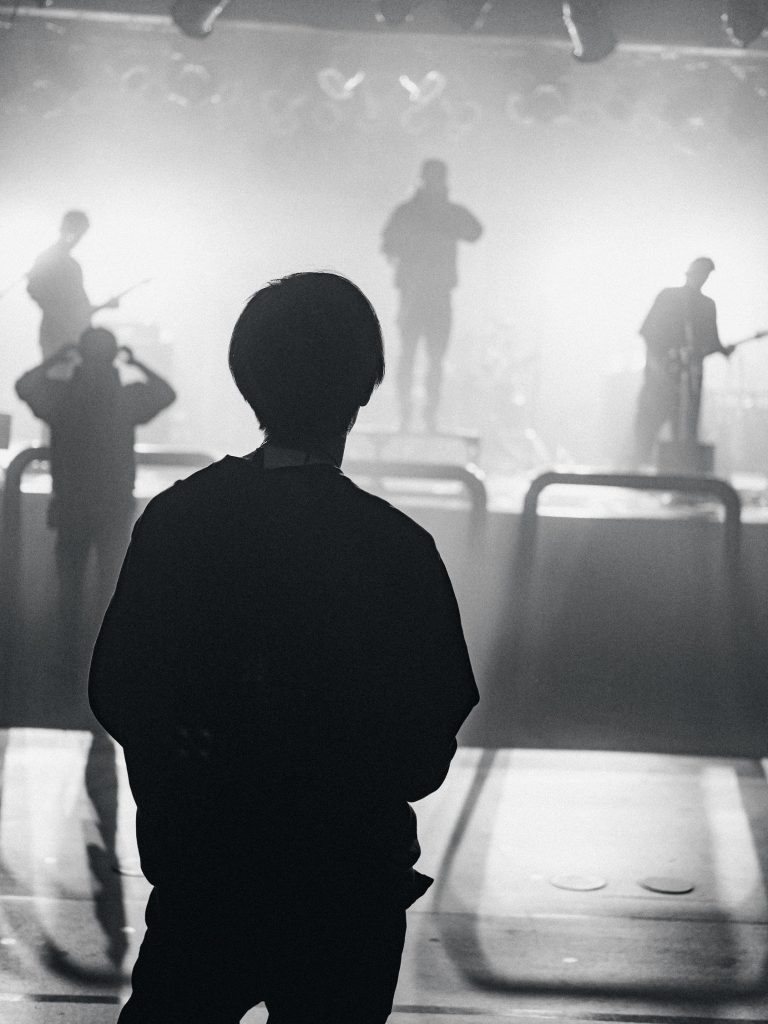
ー And last but not least, what is your “why”? Why do you do, what you do?
As a sound engineer, I've certainly spent a lot of time focusing on sound, but I think what I’ve valued even more is actually sincerely engaging with the artists.
In the end, this job is about people working with people, and I’m truly grateful to my mentors and senior colleagues who have shaped the way I work today.
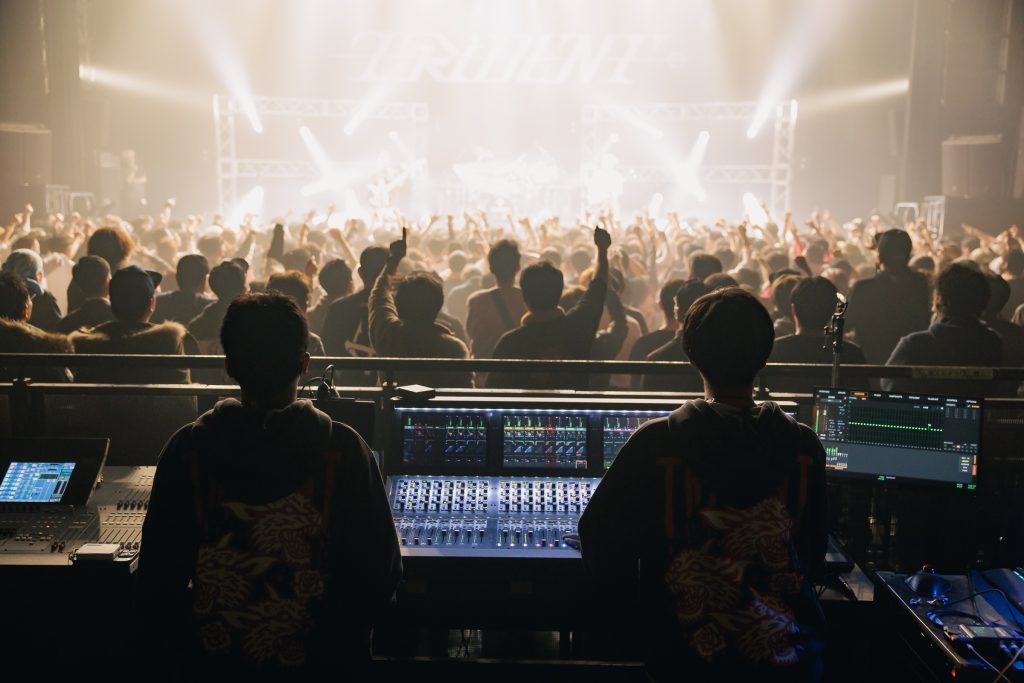
Interview & Translation: Olga Mazlina
Follow Yuta Odashima here 👉INSTAGRAM
